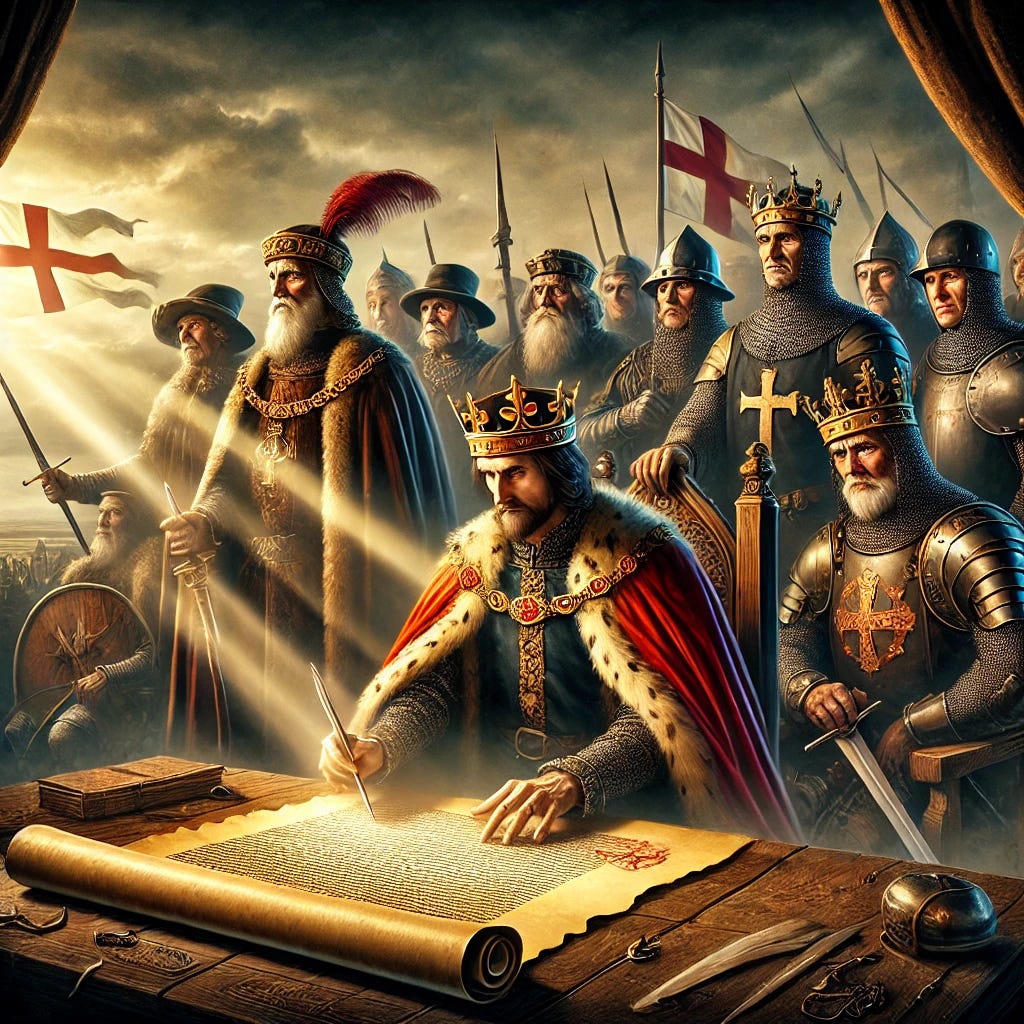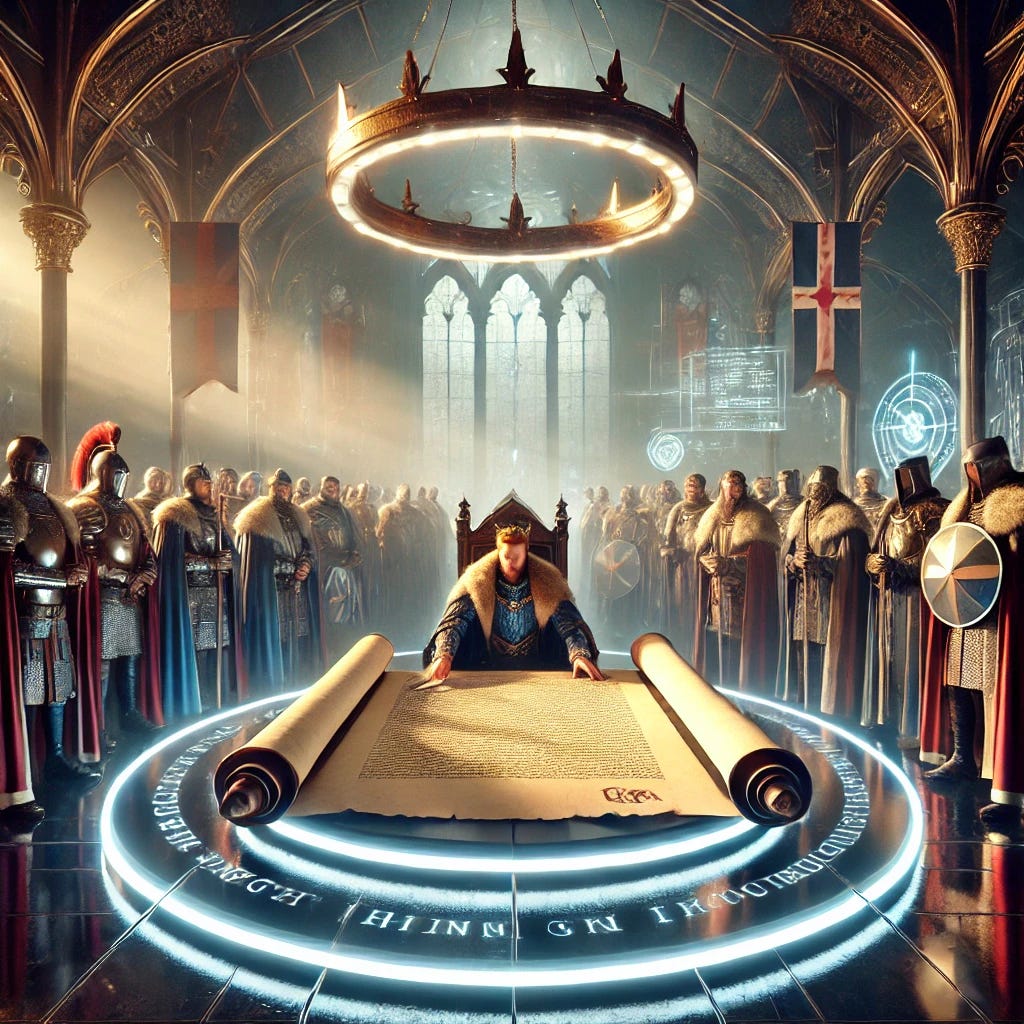Let’s time-travel back to 1215—when kings wore fur capes, taxes were made up on the spot, and if you annoyed the crown, your head and your neck would part ways faster than you could say “due process.”
At the center of this historic mess? King John of England—poster child for unchecked royal ego and the original “because I said so” ruler.
But then… something incredible happened.
The Barons Got Fed Up (and Probably a Little Tipsy)
Imagine being a wealthy landowner in medieval England. You’re already paying absurd taxes to fund a king’s losing wars and his weird hobby of building castles just to abandon them.
So, a group of noblemen (let’s call them the medieval union reps) decided enough was enough.
They cornered King John at Runnymede and made him sign a document that was less of a peace treaty and more of a royal spanking: The Magna Carta.
So, What Was the Magna Carta?
It was basically the first time in English history where the king had to follow rules—like a commoner!
Key ideas included:
No taxes without consent (imagine your landlord having to ask before doubling your rent).
The right to a fair trial (you know, instead of being thrown in a dungeon for "suspicious vibes").
Protection from unlawful imprisonment (habeas corpus—Latin for “you can’t just throw me in jail because you feel like it”).
It wasn’t perfect. It mostly helped the wealthy at first. But still, it was a crack in the armor of authoritarianism.
From Scrolls to Ballots
Over the centuries, the ideas in the Magna Carta didn’t fade—they spread.
Parliaments formed. Kings got less bossy. Eventually, the idea that regular folks could choose their leaders became less of a punchline and more of a political philosophy.
Cue the evolution:
England’s Glorious Revolution gave Parliament power over the monarchy.
The American and French Revolutions took those ideas global—with fireworks and guillotines.
Now, thanks to centuries of demanding “more say,” we have elections, representative democracy, and political ads that somehow make us miss King John.
So Why Does It Matter Today?
Because even though we’ve moved from feudal lords to federal ballots, the spirit of the Magna Carta still beats at the heart of democracy:
Question authority.
Demand accountability.
Never sign anything under duress—unless it limits your power as an out-of-control monarch.
In conclusion: the Magna Carta is proof that sometimes, a strongly-worded document signed under pressure can change the course of history.
So the next time you vote, remember: it all started with a fed-up group of barons, a sniveling king, and a document that said, in essence, “You’re not above the law, Your Majesty.”
Mic drop. (Quill drop?)















Share this post